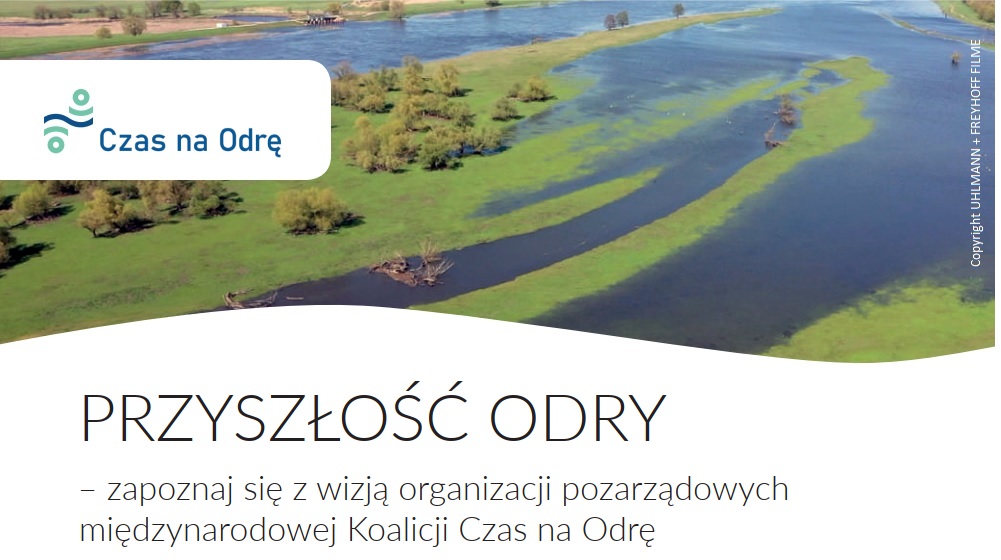It wants governments to comply with their own regulations

Ostrava, Wroclaw, Berlin: Not much has changed since the environmental disaster on the Oder in 2023. Mines and industrial plants are still discharging uncontrolled salty wastewater into the river, and it is only a matter of time before a similar disaster happens again. According to the international coalition Time for the Oder, of which Arnika is a part, the states in the Oder river basin must consistently implement water protection regulations and strategies.
The international coalition Time for the Oder presented its vision of an Oder that is friendly to people and helps nature. The document was adopted by the member organisations at a conference in Criewen, Brandenburg, at the beginning of September 2023. It responds to the needs of nature and the communities living along the river, and presents a future that differs significantly from the current situation, and from plans for further regulation of the Oder, especially by the current Polish government.
“The future of the Oder is uncertain. There is no overall concept for improving the state of the Oder, which would include measures to reduce pollution and strengthen the resilience of the riverscape to environmental influences such as floods and droughts. Sustainable development of the Oder river basin is only possible if we use existing resources with respect for nature,” says Florian Schöne, Executive Director of the German League for Nature and Environment (Deutscher Naturschutzring), as the representative of the German organisations in the coalition.
Vlastimil Karlík of the Czech association Arnika adds: “We want to show in our vision and in the examples of projects already implemented that are in line with it that there are real ecological alternatives for managing watercourses and landscapes. Sustainable development represents a great opportunity for nature and people in the Oder basin.”
The international coalition Time for the Oder stresses that the vision presented is not a utopian idea of NGOs. It represents the state of affairs that would result from the consistent implementation of European and national directives, regulations and strategies.
On the occasion of World Rivers Day, Time on the Oder therefore calls on the governments of all three countries to implement the objectives they have set for local development as EU Member States in the form of legislation, commitments and recommendations. “This requires good international cooperation. We as citizens’ associations from all three countries can serve as a good example in this respect. The time has come for governments to also start constructive cooperation to make the Oder a river that benefits people and nature,” explains Dorota Chmielowiec-Tyszko from Fundacja Ekorozwoju.
Further Information:
The Time for the Oder Coalition currently brings together 28 NGOs from the Czech Republic, Poland and Germany.